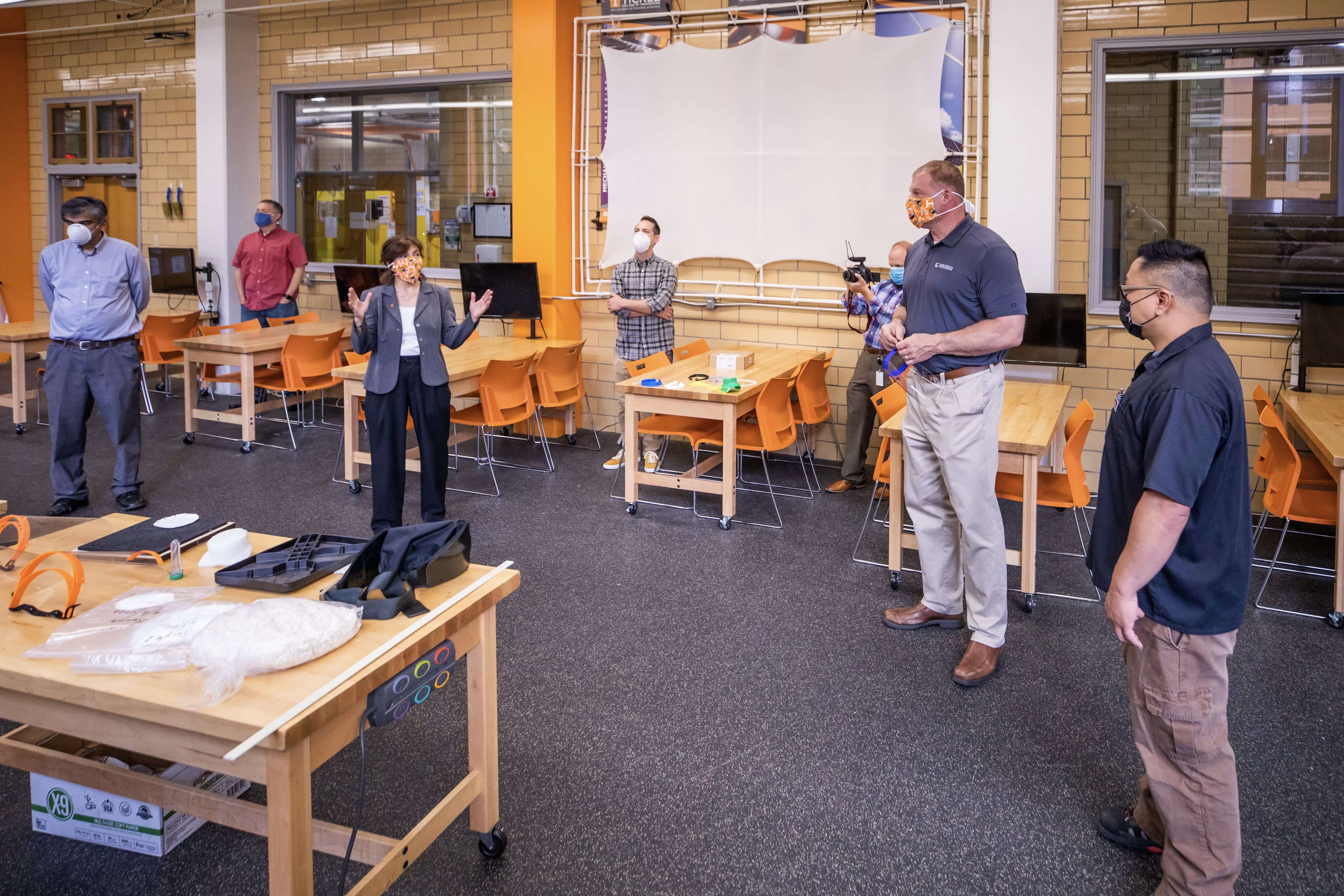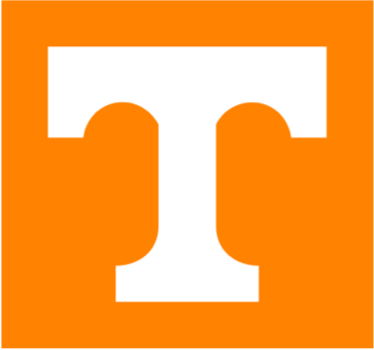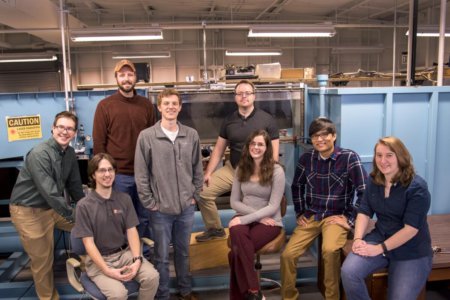Jennifer Cooper’s personal goal has always been to earn the most prestigious of all qualifications: a PhD. With the University of Tennessee, Knoxville’s PhD in Industrial and Systems Engineering (Engineering Management concentration), this is now possible. “I chose this programme because of its online options,” she says.
She believes it will boost her career in several ways. “A PhD is more recognisable in my industry in showing technical expertise,” Cooper says. “I would like to become a technical fellow within my company — while a PhD is not required for this, I believe it will help me show the depth of my technical knowledge.”
Whether you’re pursuing a master’s or PhD, the professors and staff members at UT Knoxville act as anchors — giving you the freedom to explore while supporting you. “Some of the best courses that I have had are from professors that have field experience and are able to blend that experience with the course instruction,” Cooper explains. Her advisor Dr. Andrew Yu has been extremely helpful and encouraging about doing research early, while
Dr. Xueping Li was always available to meet outside class times to answer modelling questions. Inspired by them, she plans to follow in their footsteps. “I have experience in different industries and would love to teach a little and share my experiences to help upcoming students in their careers,” she says.
A UT Knoxville education is transformative. Apart from its continuous accreditation by the Southern Association of Colleges and Schools Commission on Colleges, five students have been named Goldwater Scholars, ranking UT Knoxville first in the country for the prestigious award. Its campus — which includes the UT Space Institute — spans 910 acres, with 294 buildings and over US$1 billion in projects under design and construction. The Tickle College of Engineering consists of eight departments of study, seven nationally renowned research centers, and more than 100 state-of-the-art laboratories.

Source: University of TennesseeUniversity of Tennessee, Knoxville: Inspiring future industrial and system engineers
It’s an environment that nurtures success. The university has a longstanding history in delivering engineering programmes that open doors, boost careers and future-proof graduates. One programme that exemplifies this best is UT’s Engineering Management programme. It can be conducted online and awarded at several levels: graduate certificate, master’s degree or doctoral degree. This programme provides practising engineers with an experience balancing technical depth with leadership, project management, financial management, technology transfer, ethical and legal perspectives, team relations, organisational behaviour and continuous quality improvement. It’s a qualification that empowers graduates with the knowledge and skills needed to lead technical organisations to success. Admission is open to graduates of ABET-accredited undergraduate curricula in engineering, or graduates of other technical curricula who satisfy prerequisites depending on their academic backgrounds.
Any working engineer, located anywhere in the world, can join this programme. Classes are streamed live and recorded for later reviewing. Peers are diverse and talented — providing ample opportunities to network. Faculty is one of the most experienced around.
“The online course format was excellent; despite the distance, I was able to communicate with my professors and successfully execute group projects,” says alumnus Michelle Halsted, who completed a graduate certificate in engineering management. “I believe this virtual experience will be valuable experience and preparation for engaging with colleagues in our global society. Platforms like Google Drive and Slack do not let distance limit productivity, and Google Hangouts proved to be an effective way to host a virtual meeting.”
With affordable tuition, students can earn a top-ranked US degree — the full programme, as taken by on-campus students — without sacrificing their careers or other life commitments. They can start from home, continue working while applying for a US visa and cap the whole experience with an invaluable Optional Practical Training programme.
Cooper enjoys the modelling and simulation course the most. “I’ve done distance education before, even while travelling. With COVID and my busy work schedule, it hasn’t been easy to make time for course work and research. However, the professors and staff have been super supportive so I’m grateful,” she said.
UT Knoxville faculty members are also prolific. In the 2020 list of Highly Cited Researchers from Clarivate, 6,167 researchers from more than 60 countries and regions were recognised — five were faculty members and researchers affiliated with UT Knoxville. The list is based on publications that rank in the top 1% by citations for a field (or fields) and publication year in the Web of Science citation index. “The knowledge frontier is advanced by communities of researchers who, working separately and together, make contributions to their fields,” says UT Provost, Dr. John Zomchick. “UT students have the opportunity to do research with, learn from, and be mentored by world-leading faculty researchers working at the forefront of their fields.”
Follow the University of Tennessee on Facebook, Twitter and YouTube













